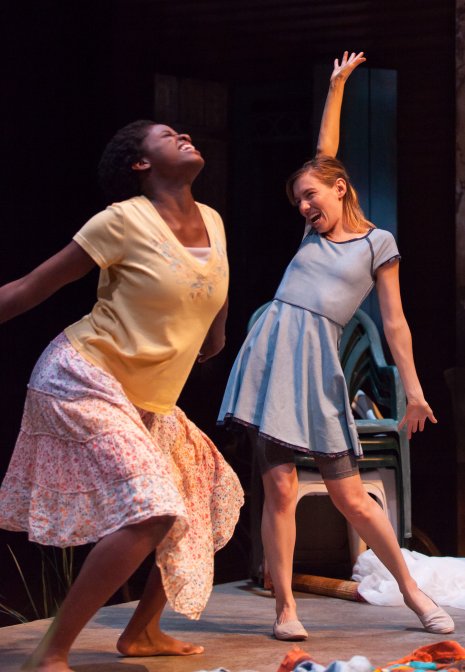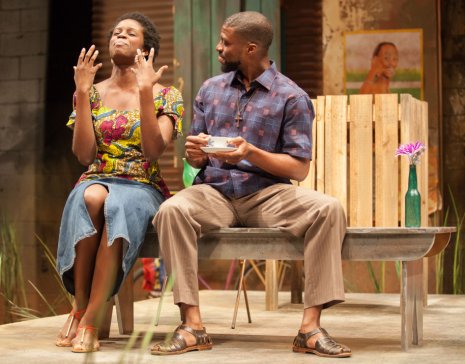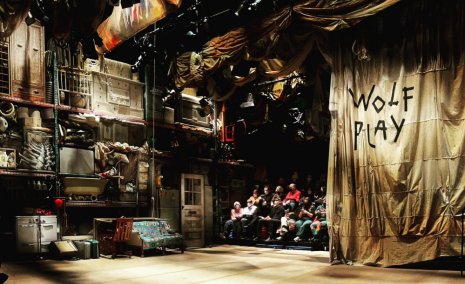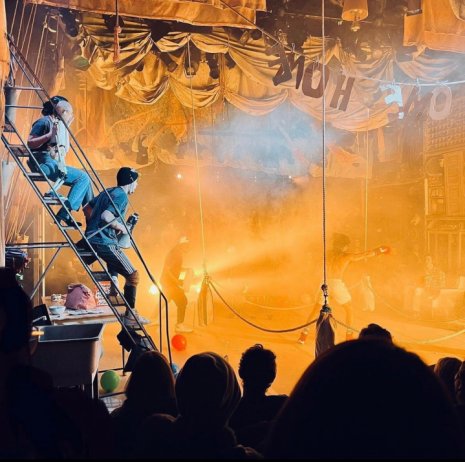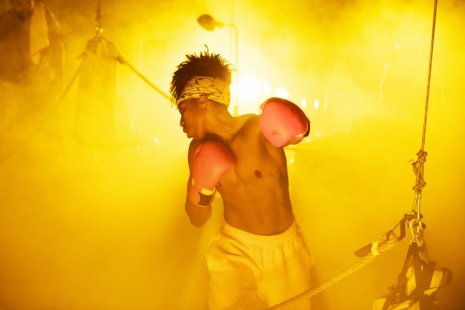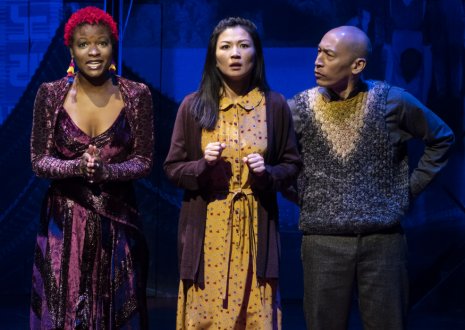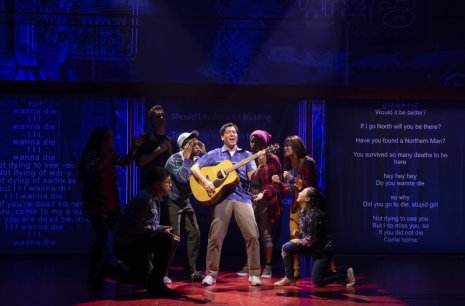In Hansol's Words...
I have always been drawn to loneliness. The loneliness of outsiders, the uprooted. The loneliness that comes from leaving a home, being abandoned, the panicked state of trying to find eyes that recognize. Through stories about abortion, adoption, immigration, child soldiers, and star-crossed lovers on opposite sides of an impassable border, I've consistently obsessed about loneliness.
Recently, I’ve been drawn to desire. Writing about loneliness gets sad real fast, and I think I started writing little jokes to release some tension along the way. I got pretty good at sexual comedy, actually. Early in my career I had colleagues who would earnestly say my superpower was high-level-lowbrow-dick-jokes. My favorite comedy comes from desire. A desire for physical intimacy, for a person to belong to, a desire to please, but mostly the desire to be understood.
Turns out, I’ve been using desire-motivated-comedy to puncture seemingly impenetrable devastations – those ironclad bubbles of grief, rage, depression and, yes, loneliness. A Hansol Play: You’re an alien with no gravitational pull and then something pulls – someone sees you, someone sings to you, someone falls into a one-night sexytime with you – and plants in you a Desire. Sometimes for connection, often for sex, always for a chance to be understood. You spend the whole play following that desire, leaving the dark hole of loneliness for a while. Of course, the dark hole returns and you are left with a choice (you the character, you the audience; at this point hopefully it's all the same): should you stay protected in your hole of sadness or should you expose yourself to all the unknowns that come with desiring somethings/someones you don’t yet have? Either way the fragility of the human condition will leave you weeping.
All my plays were that. So I flipped it. Cue: a comedy about a not-lonely lesbian hottie whose life-long desire was to have desire.
MERRY ME began as a queer female adaptation of William Wycherley’s Country Wife. It quickly flat-lined in the one-to-one transposition from Male Desire to Female Desire. It didn't work. So I mixed in other plays that I thought were about Male Desire - Iphigenia from the Greeks, Angels in America from the Now and sought to find a dramaturgical structure that crafts an experience closer to the female orgasm (as opposed to the ejaculatory elation of the Hero's Journey structure). There was some success, some failures to finding the structure but the journey from inception to production was so fucking joyful.
After a decade of writing plays with the goal of making people cry, it was a nice shift to try to make them laugh. Added bonus was that most of the time the people who laughed at my non-lonely lesbian hottie's antics were people who often saw themselves represented in stories of trauma, suicide, abandonment, violence and varying levels of social pariahdom. It was more than nice. It was triumphant. The high of that triumph was addictive. Now I am losing interest in the dark hole of loneliness.
Not saying I want to be in the writers’ room for SNL, but there is a shift in focus: from stories of lonely orbits to stories of desires achieved; from solo individual pathos to shared communal catharsis; from articulation of aliendom, to mashing up incongruities.
MERRY ME was a gift play for director Leigh Silverman. After the two dark years of developing and directing two productions of WILD GOOSE DREAMS (the schizophrenic suicide play), she wanted to direct a lesbian sex farce. I wrote it because Leigh asked me to, and I wanted to impress her and show her how gay I was. (queer gay, funny gay, all of it please like me).
The experience materialized a theory about the creative process: A playwright who writes in a room by herself will contribute a play that is written first and foremost for the expression of her artistic consciousness. But when she is writing as a part of a collective, when she is taking in aesthetics, strengths, quirks, habits, traumas, anxieties, desires of her collaborators into the writing room with her when drafting the first pages, she is writing primarily for this community. And so, the play is big. Potentially, Big-ger than the one she started and finished in a room of her own.
The theory was half-proven during the trials and triumphs of WOLF PLAY directed by Dustin Wills at Soho Rep. We were shut down due to Covid Pandemic in 2020, brought back in 2022, remounted in 2023, winning 5 out of 6 nominated Lortel awards - Set, Sound, Best Ensemble, Best Direction, Best Play; then OBIE awards for Lighting, Direction and Play. In this third remount, I found myself rewriting the play to accommodate it to these collaborators who had marinated in the play for four years and three productions. I wrote to accommodate the company's aesthetics, strengths, quirks, habits, traumas, anxieties, and desires. The Yale Grad in me would never have allowed that. ("The Playwright should stand by their text no matter what! Actor-proof it! Director-proof it!") And yet I know we had the impact we had because the company got to a level of understanding this world and these characters, far beyond my text.
So I told them about my theory. I told them I wanna write more plays for them. I wanna see what the twentieth play I would write for them looks like. Would Two Gents become Romeo and Juliet and pave the way for a Hamlet which will then age nicely into a King Lear and/or Tempest? I was met with blank stares. I told them I would divvy up the royalties into equal parts for all the plays they helped me build. They said yes. I said Yay! We are calling ourselves The Pack. (Not everyone said yes to the name but majority rules, even in a group of eight)
I'm concerned still with the things I'm concerned with (loneliness, aliendom, desire, incongruity, the comedy and tragedy of collective trauma) but I'm also concerned with seven other humans' concerns. It's wildly frustrating, chaotic, and inspiring. I have since written four new plays in a year. Considering I've only written two new plays since I graduated from grad school, it's been a wildly productive year for me.
The economics of New Play Development has normalized a sense that actors, directors and dramaturgs are replaceable for reasons like travel and housing budget, schedule, and pre-existing in-house collaborators from supporting institutions. The economics of creating a new play collective where everyone has a flourishing career/busy schedule and no-one is easily replaceable has its own challenges, but my theory is that it will be worth the work and it will show itself in time, on stage.
But if nothing else it seems I will at least have more plays that aren’t just about being lonely. Today I'm counting that as a win :D


